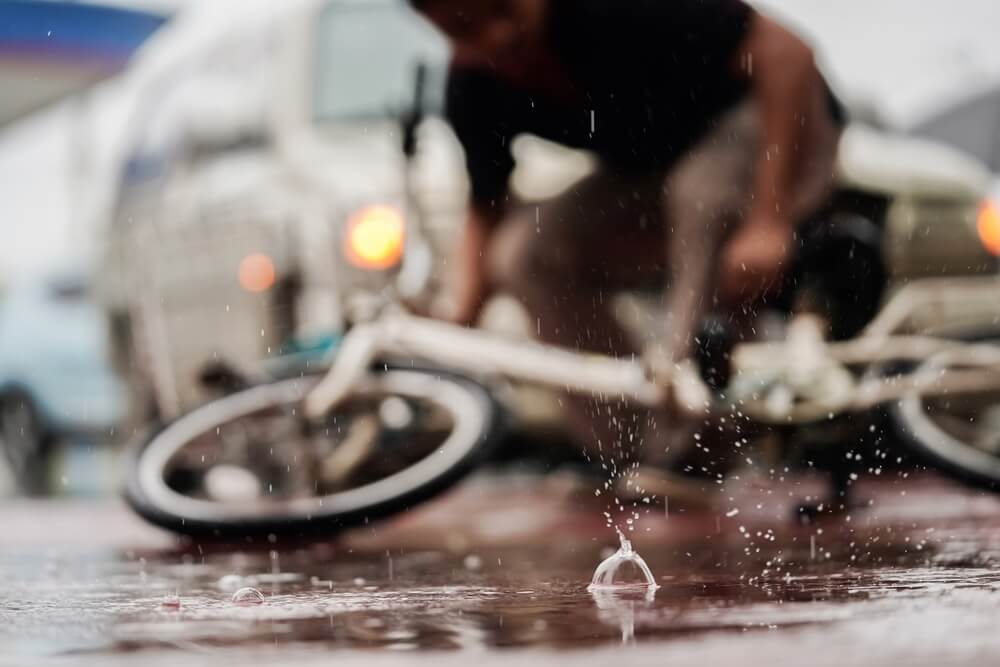Weather-Related Accidents: An Overview

Each year, over 1,300 people are killed and 116,800 people are injured due to adverse road conditions. Even though the primary cause of an accident may be inclement weather, a driver can still be found liable for a crash.
If you have been in a weather-related accident, the Holladay Law Firm, PLLC, is here to represent your interests.
How Does Bad Weather Impact Travel?
Bad weather can cause a variety of problems on the road. Besides creating hazardous road conditions, precipitation (snow, rain, or sleet) can impact the following:
- Visibility: a driver will not be able to see as far in the distance due to precipitation obstructing their view of the road
- Vehicle performance: a car will not have as much traction in slippery conditions
- Traffic speed: the speed of other vehicles on the road will be reduced
- Travel time delay: traffic will be moving slower, causing drivers to take longer to reach their destinations
- Speed limit control: it may take up to ten times longer to stop your vehicle on icy or snow-covered roads
Bad weather is not just limited to precipitation. Fog is another major hazard while driving. Heavy fog impacts:
- Speed variance: some drivers may travel faster than others due to varying comfort levels
- Perception: drivers have a more difficult time judging distance or discerning if another vehicle is moving
- Visibility: drivers will not be able to see the distance necessary to drive safely; other drivers who use their car’s high beams will reduce others’ visibility even further.
Who is Liable for Weather-Related Accidents?
Drivers are expected to take the necessary precautions when driving in inclement weather. If the weather is dicey, drivers are expected to slow down, use their hazard lights, and not follow other vehicles closely. Even still, drivers often get into accidents driving on slippery roads and in foggy conditions.
The weather cannot be held accountable for your collision, and drivers often struggle to get insurance coverage for these accidents. Although this may seem unfair, drivers always have the option of staying off the roads in bad weather.
However, if a driver behaves negligently while driving in bad weather, then they will be held accountable for the accident. The investigation conducted by the insurance company will uncover if either driver did not use “reasonable care” while driving. The responsible party will be held liable and will have to pay damages to the other driver.
Steps to Avoid an Accident in Hazardous Conditions
In order to avoid weather-related accidents, all drivers should reduce their speed. The posted speed limit is only appropriate in ideal conditions.
Motorists should reduce their speed by 1/3 on wet roads and cut their speed in half on snow-covered roads. So, if the posted speed limit is 30 miles per hour, then a driver should travel at 20 miles per hour on wet roads and 15 miles per hour on snow-covered roads.
If the roads are so slippery that you don’t feel safe operating your vehicle, you should pull off the road. If doing so, be sure to turn on your hazard lights so that oncoming traffic can clearly see you.
Besides reducing their speed, drivers should take the following measures in hazardous conditions:
- Keep your windows clear: visibility is key to accident avoidance;
- Leave room between your vehicle and the vehicle in front of you;
- Brake slowly: hard braking can cause a loss of steering control and skidding;
- Find an alternate route: if a road is flooded, find another way to get to your destination; and
- Turn on headlights (low beams when driving in fog).
Drivers who lack experience driving in poor conditions will be limited in making safer choices behind the wheel. Conversely, drivers who have experience in dangerous conditions will know how to react if circumstances worsen.
A Spring TX Car Accident Lawyer Near You
If you have been in a weather-related accident, you need the guidance of Attorney Jason Holladay. The Holladay Law Firm is committed to representing our clients and getting the insurance companies to pay out fair settlements.
We don’t get paid unless you are compensated. Contact us today to schedule your free consultation. Proudly serving Houston, The Woodlands, Spring, and surrounding areas.
